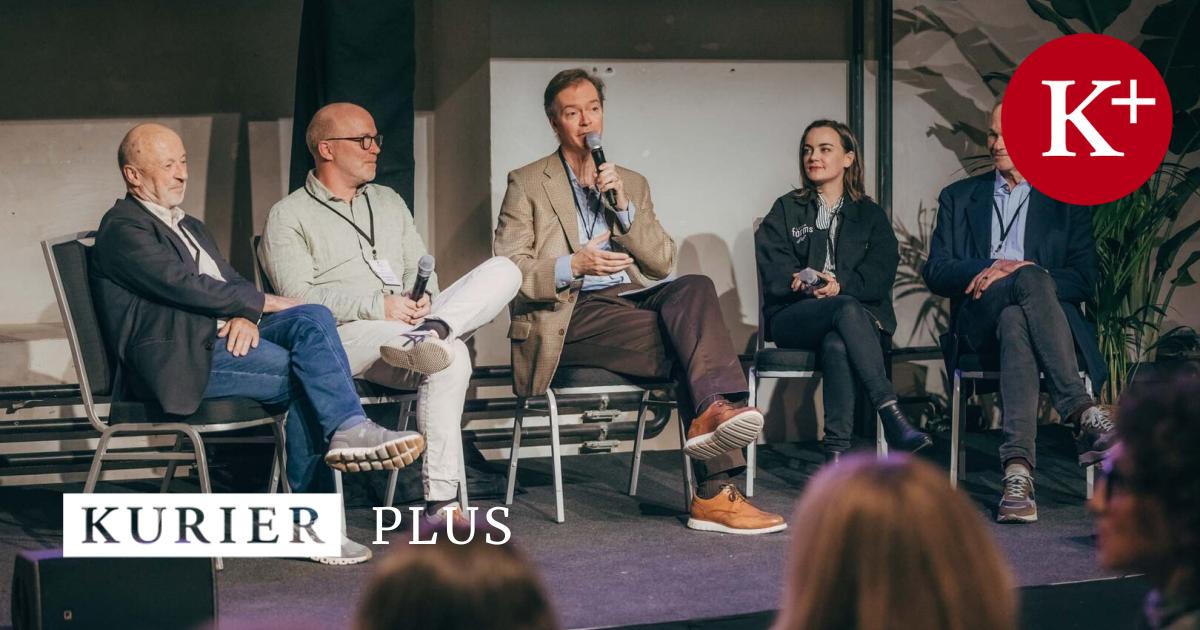Legend Tour
Likewise, four “legends of the startup scene” were welcomed when they took the stage to discuss. Business angel Hansi Hansmann, Speedinvest CEO Oliver Holley, Livin Farms CEO Katharina Unger, and Alpbach Forum Chairman Andreas Treichl (former Erste Chairman) discuss Europe's role in the startup world. “It doesn't look good,” Trichel says. Although Europe boasts extraordinary talent and top experts, Holley points out. This is why Europe is fundamentally interesting for investors. If only there weren't complicated regulations making things difficult for young entrepreneurs. Because the motivation is there, says Hansi Hansmann: “I invested in my first startup in 2010.” “Today there are many more startups, better presentations and well-thought-out business models, which is a clear improvement, in his opinion.” He assesses the political development of the so-called startup ecosystem less positively: “It is as bad as it was in 2010.”
Lack of capital
“Big players in legacy industries” would prevent development in Europe, according to Andreas Treichel (a former director of the bank). He attacks “lousy” politicians, “cowardly” banks, and over-regulated bureaucrats – something that was met with applause in the Semper warehouse full of (would-be) founders. Trichel: “We need more interdisciplinary conversations, including between generations, in order to put pressure on politicians.” Because the consequences will already be clear: “There is a shortage of capital and Americans are eating our lunch,” says Oliver Holley. “We need exits. This gives us more money that we can invest in other startups. This way you can also stimulate innovation. Because talent follows money.
Speaking of talent: “In Europe, the role of an employee is more attractive than that of an entrepreneur,” says Katarina Unger. “We don't have the same social benefits. This has to change to get more people interested in starting a business.”
The courage to fail
Despite all the obstacles and shortcomings, experts remain positive. Trends on the scene could benefit Europe. “We're moving from fintech and e-commerce more to climate and health. That's a good thing, because these particular companies are based in Europe,” says Oliver Holley. “To be globally successful, you have to approach problems in a simplistic way. “We tend to Make things especially difficult. “It takes courage to try, fail and keep going,” Unger said.
Andreas Traichl offers another glimmer of hope: “Europe is really beautiful. And if all else fails, we can still make a lot of money from wealthy tourists.”

“Total coffee aficionado. Travel buff. Music ninja. Bacon nerd. Beeraholic.”







More Stories
Wolfsburg instead of Wörthersee: The first GTI meeting starts at Volkswagen headquarters
Pecco Bagnaia (Ducati): Testing on the new Panigale/MotoGP
From autumn onwards, U2 will be playing again at Karlsplatz.